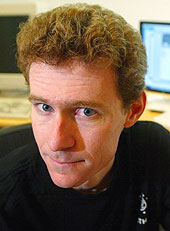Delivering on the Promise of Precision Medicine
In conjunction with partners Genentech and Oracle as well as the members of its active and diverse healthcare committee, the Bay Area Council convened a summit on exciting recent advances in precision medicine on February 25, 2016. In addition to showcasing the scientific progress in this field, the summit included a serious high-level conversation about how to best deliver and pay for precision medicine so as to provide maximum benefit to patients within the context of a healthcare system that is financially sustainable for the country, businesses and individuals.
Read the event brief as a PDF, or use the links below to view highlights from the event itself.
 |
Kimberly Popovits, CEO of Genomic Health and Paul Markovich, CEO of Blue Shield of California engaged in a productive and fascinating dialogue about how to best work across sectors to advance precision medicine with a focus on value for spending.
|
 |
Dr. Manoja Lecamwasam, Executive Director of the Dignity Health Intellectual Property Strategic Innovation Office and Dr. Elizabeth Baca, Senior Health Advisor at the Governor’s Office of Planning Research, and Dr. Michael Seiden, Chief Medical Officer of the U.S. Oncology Network participated in a panel on making the promise of precision medicine real within the community hospital setting and the efforts that the state has undertaken to support this field of research. |
 |
Joseph DeRisi, PhD, Chair of the Department of Biochemistry & Biophysics at the University of California San Francisco opened up the conference with a thought-provoking presentation on the application of genetic sequencing in the field of infectious disease and how it is becoming quicker and more cost effective. |
 |
Michael Varney, Executive Vice President at Genentech talked about how HIV is an excellent case study for the promise of precision medicine. |
 |
Garret Hampton, Vice President of Oncology Diagnostics at Genentech explains how DNA sequencing has become sensitive enough to use DNA fragments in patients’ blood to identify tumors based on their molecular alteration. |
|
|
Dr. Otis Brawley, Chief Medical Officer at the American Cancer Society spoke about the importance of prevention and how our understanding of hte nature of cancer is changing. |
 |
Jonathan Sheldon, Global Vice President for Oracle Health Sciences delivered a talk about how the effective use of big data can help make the promise of precision medicine a reality. |


